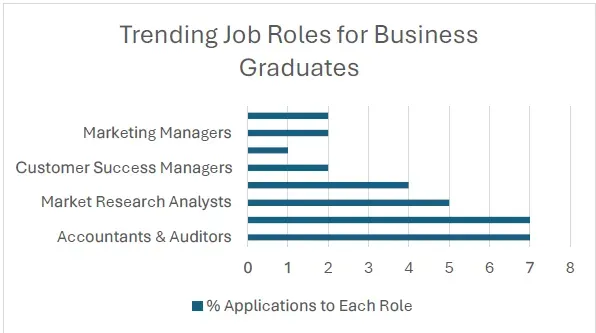| Americas, Asia, Global, UK & Europe | Articles

This article by Tina Chugani was an honorable mention in the 2024 Risky Women Writing Competition, presented in partnership with Bovill Newgate. She explores the meaningful impact of GRC professionals, highlighting their role in fostering ethical practices, protecting communities, and promoting sustainability. Her article was first published here
The words Governance Risk Compliance (GRC) conjures up images of rules, boredom and sometimes fear. Fear of breaking the law, fear of penalties. A recent survey by Handshake[1] shows an absence of GRC roles in job roles that business graduates are applying for. (Auditors have been squeezed in with Accountants.) This highlights the idea that even the younger generation are not considering GRC roles as an initial career choice.
However, I believe that GRC is a force for good, GRC is a moral and humanitarian imperative and GRC has in fact already enabled meaningful work.

Meaningful work is defined as “positive impact on other people’s lives.” Meaningful work is a sense of being needed and being useful to society.
We often think of teachers, healthcare workers as people who do meaningful work. But people who save the planet, and prevent crime and fraud are as important to a functioning ethical society. People that ensure goods and services are sustainably produced and that workers get fair pay are all doing meaningful work.
Risk Managers, Compliance Managers, Legal, and many others are all part of the GRC engines around the world that are driving positive change.
In this article, I will unpack how I came to view GRC not as boring risk management, but a force for good, that aligns with my value of meaningful work. I hope this article inspires fellow GRC practitioners to find new meaning in their work and stand proud of their jobs, knowing their work drives positive global change.
Governance redefined
Governance is effectively control over an organisation, rules, policies and procedures, but it is also corporate responsibility. The lack of corporate governance and basic policies will often throw up the usual problems – corruption and bribery in procurement, nepotism in recruitment, even health and safety incidents in operations. Corporate Governance is now a basic requirement for organisational effectiveness and efficiency. Without it, the organisation is ripe for poor practices that make for catchy news headlines and reputation damage.
Modern-day governance though is being redefined by leaders like Paul Polman, CEO of Unilever 2009-2019 who declined to report short-term earnings and focus on long-term sustainability, changing how Unilever has been run with a focus on people and environment, while still being profitable[2].
GRC professionals – unsung heroes
GRC professionals often hidden backstage, usually seen as the “No Police” are the unsung heroes of value protection and value creation. GRC practices such as Data Privacy, Information Security protect us, our customers, our employees, our children from data breaches and cyber- attacks. Despite the recent and ongoing intrusion of social media into our lives, I consider it meaningful that I can prevent my children from watching unhelpful YouTube videos and I can use technology to limit their time on devices. Behind all of these controls sits a GRC professional thinking of ways to protect end users and organisations.
Data breaches or disruptive events always grab headlines – what is often not reported is the intense effort behind the scenes to implement the crisis and recovery plan. I was once part of a disruptive aviation event and not only did I personally find it meaningful to be involved in the recovery and passenger assistance support, I know the return to normal operations was down to an extremely robust crisis and recovery plan. Every member of staff went home tired but feeling fulfilled that they were able to support travelling passengers and help reunite worried families.
Complex compliance
Yes, compliance is about meeting rules, regulations and laws. Would anyone argue that we should not pay fair wages, we should pollute, we should discriminate? Compliance is ensuring that rules, regulations and laws are met, because the basis for all of these is predominantly in the interest of a better, fairer society. Meeting the basic compliance requirements is a foundational step towards achieving higher standards in social, ethical and environmental aspects. Implementing ethical business practices such as fair wages, anti-discrimination, not only lead to a better supply chain, a more diverse workforce, they ultimately lead to better products and services, more customer loyalty and trust, and even higher employee engagement and retention.
IKEA magnifies their ESG impact through their IWAY[3] code of conduct for suppliers. IWAY is how IKEA has taken control of responsible procurement, working with their suppliers to protect the environment, workers, children and animals. Some of the principles include conducting business lawfully, time off for workers, suitable working and living conditions and protecting the planet. IKEA works with the supplier ecosystem to continuously improve the ways of working, thereby building more value into the supply chain, and gaining respect, trust and loyalty from customers.
GRC – A moral and humanitarian responsibility
Governance Risk Compliance is not boring, it’s not unnecessary, it’s not just mathematical models – it is thoughtful, considerate value-add work that goes into addressing organisational, societal, global challenges and issues. GRC is work that has seen the introduction of policies that prevent harm, mitigations that stave off disaster, plans that enable quick and effective
recovery.
If you are a GRC Professional, shout it out loud and maybe encourage the next generation to consider GRC as a meaningful career choice. GRC is your superpower and is a powerful tool that organisations must leverage, not just for value protection and creation, but for the good of the world.
References
- Handshake, Catching up with the Class of 2024, May 2024. https://joinhandshake.com/network-trends/class-of-2024-graduation/
- Former Unilever CEO Paul Polman Says Aiming for Sustainability Isn’t Good Enough—The Goal Is Much Higher https://hbr.org/2021/11/former-unilever-ceo-paul-polman-says-aiming-for-sustainability-isnt-goodenough-the-goal-is-much-higher
- Securing responsible sourcing through IWAY https://www.ikea.com/global/en/our-business/sustainability/securing-responsible-sourcing-throughiway/#:~:text=What%20is%20IWAY%3F,providers%20that%20work%20with%20IKEA

